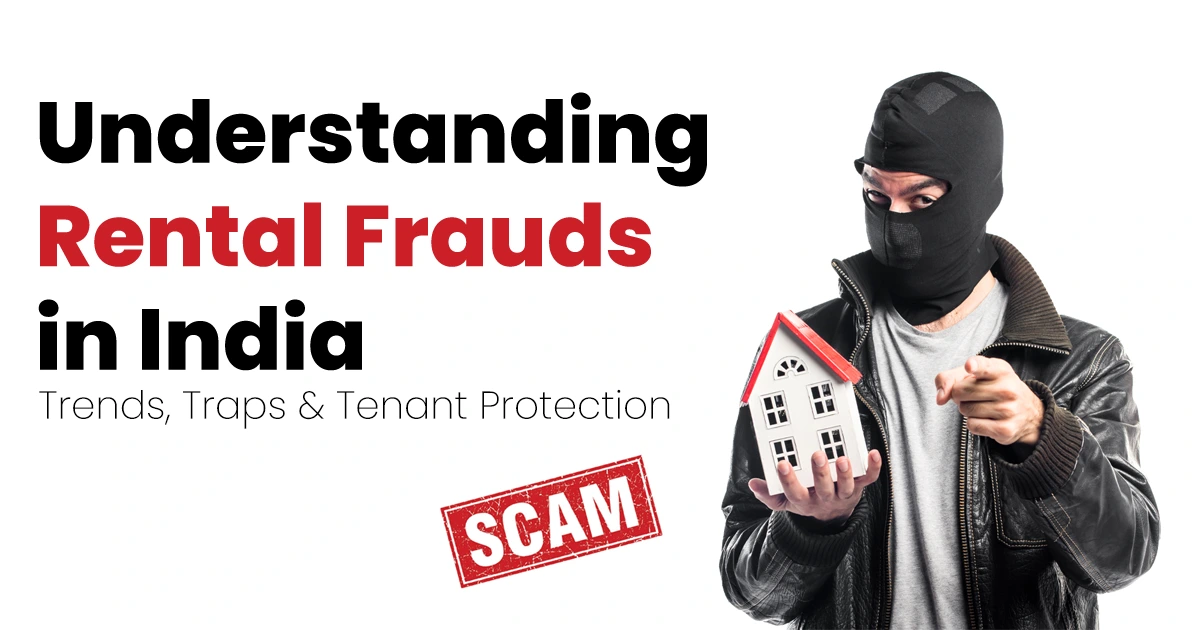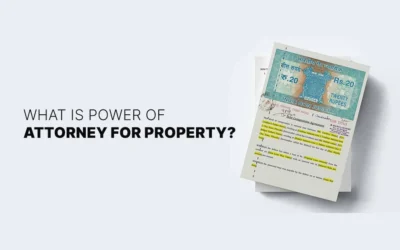A telephone call. A token payment. A courteous word or two. That’s all it takes to draw a person into one of the most acceptable rental scams in India. Real estate scams today do not necessarily require the nature of physical property- only an urgent digital rush.
The bait? Professionally written listings. Urgent availability. A landlord who seems just helpful enough to skip paperwork. In this hyper-competitive rental market of India, speed often masquerades as safety. What most don’t realize is that the scam starts long, often before the lease ever begins: usually in that first click, call, or casual commitment.
This blog unpackages these modern-day rental scams: how they work; on whom they target; and, today’s most important part, on how to beat rental scams in India before signing or before sending a single rupee or even a single word.
What Are Rental Frauds in India?
Rental fraud in India takes place when fraudsters impersonate landlords, agents, or even tenants in order to defraud the victim for financial gain. These types of scams usually lead to losses, identity theft, or legal disputes against the victim.
Various reports state that rental scams are on the rise, not only in Tier-1 cities but also in Tier-2 and Tier-3 areas, especially aided by the rise of online property platforms.
Common Rental Scams in India
The following are some recognized rental frauds that must be avoided in India by landlords and tenants.
Fake Listing by Fraudulent Agents
The agents post lucrative property listings with fake photographs and unbelievably low rents to lure in prospective tenants. When interested parties contact, the fraudster demands an advance to “block” or “secure” the property and vanishes after the money is paid.
Property Not Owned by Lister
In this scam, an individual impersonates a landlord to rent out real estates that do not belong to him/her. These properties can either be lying vacant, occupied by someone else, or under dispute. Once a deposit is paid and initial rent is taken, he/she disappears.
Booking Way Too Many Times
The same property is booked and shown to multiple people. The fraudster will go around collecting deposits from prospective tenants and will vanish before the move-in date.
Fake Identities and Documentation
Some of the fraudsters use fake Aadhaar cards, fake electricity bills, fake tenancy agreements, etc. To impersonate some genuine landlord or tenant. These innocent parties entered into agreements with these derive frauds and eventually face great legal or financial trouble.
Online Payments Scam
People are now getting scammed through digital payment methods using QR codes or links. They ask for the payment through fake identities or some unverified apps and run away after the transaction.
Advance Without Viewing
The potential tenant is often asked to make an advance or to pay a booking fee before seeing the property in person, particularly in outstation relocation cases. These promises are often made amidst false urgency or emotional appeals.
Ways to Avoid Rental Scams in India

Here are some effective measures that would help you avoid falling victim to rental scams in India:
Never make a payment without verifying ownership
Always ask for the ownership documents, including:
- Sale deed
- Electricity bills
- Society maintenance receipts
- Owner’s ID (Aadhaar/PAN)
You can also check if the property is owned via the property tax database maintained by the local municipal authority, or even through the land records portal, which is available almost everywhere nowadays in most states.
Avoid Payments Before Visiting
Never transfer any amount without inspecting the property personally and meeting the landlord or agent. If the move is from another city, ask a trusted friend, colleague, or broker to verify it for you.
Insisted on a Registered Rental Agreement
It is always advisable to have a legally enforceable registered rent agreement to be executed, which contains:
- Names of both parties
- Monthly rent and security deposit
- Duration of lease
- Notice period
- Maintenance Charges
This provides legal protection and may also help matters where disputes arise in the future.
Avoid Cash Transactions
Make sure that all payments are made through traceable modes like NEFT, RTGS, or UPI, and demand a receipt for all payments and keep it in a digital paper trail.
Research the Agent or Broker
If you are dealing with the property agent yourself:
- Ask for their registration number with RERA (mandatory in most states).
- Look for online reviews or references.
- Avoid brokers who will not share their credentials.
Use Verified Platforms
While property listing sites play a significant role, prefer only those that offer verified listings along with a strong redressal mechanism. Steer clear of the classifieds on social media or unverified websites.
Always Be Cautious about “Too Good to Be True” Offers
The condition that the rent is considered too low and makes too wonderful a sound for the location and facilities is a symptom of caution. In reality, while setting up false urgency to make hasty decisions, scammers book these prices.
Consult a legal expert
In really high amounts of rentals- be they for commercial spaces or long leases- it is advisable to pour that money into hiring a legal advisor to peruse the documentation and terms.
The Role of Technology in Detecting Rental Scams
The modern digital revolution brings with it an arsenal of tools designed to unveil the grimy world of fake competition. Some of these include:
- Detection of fraud using AI in rental channels.
- Land/ property owning portals by the government.
- Online verification by police of tenants/ landlords.
- Mobile applications for paying rent securely.
Initiatives such as the DILRMP (Digital India Land Records Modernization Programme) are meant to usher in a new era of transparency in property dealing across India.
Legal Options if Scammed
In case you’re scammed when renting an apartment:
- Lodge a complaint with the nearest police station.
- Register a complaint in the Cyber Crime portal
- Inform the rental channel (if applicable).
- Consult with a legal consultant regarding the reimbursement of financial loss.
Certain deceptions also fall within IPC sections such as 420 (cheating), 465 (forgery), and 471 (using forged documents), which assist in bringing the fraudster to justice.
Summing Up
The unfortunate increase in rental scams in India has taken root with the accelerated development of the housing sector itself; however, awareness, vigilance, and legal protection of tenants and landlords can aid in self-protection.
Being aware of prevalent rental frauds in India and acting upon smart mechanisms to evade rental scams in India can help you ensure a safe and hassle-free rental experience.
Being cautious is not being paranoid; it is simply a matter of staying a step ahead of fraudsters who thrive on trust and hurry. Let informed choices control your rental journey instead of hurried decisions.




